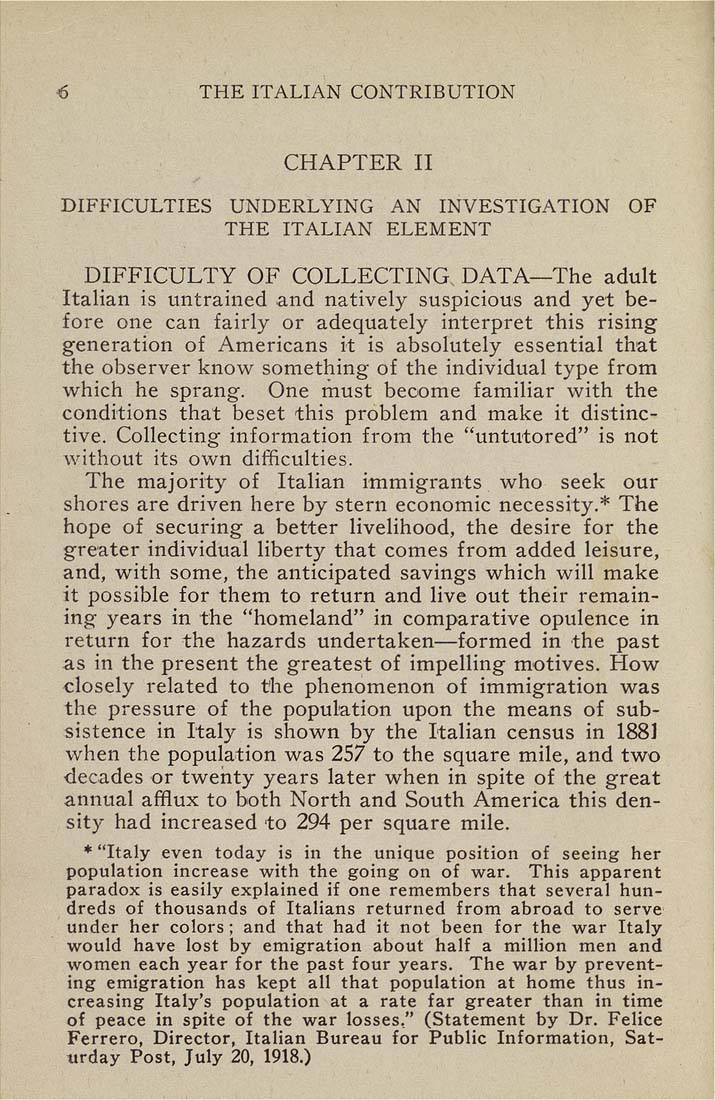THE ITALIAN CONTRIBUTION
CHAPTER II
DIFFICULTIES UNDERLYING AN INVESTIGATION OF
THE ITALIAN ELEMENT
DIFFICULTY OF COLLECTING. DATA—The adult
Italian is untrained and natively suspicious and yet be¬
fore one can fairly or adequately interpret this rising
generation of Americans it is absolutely essential that
the observer know something of the individual type from
which he sprang. One must become familiar with the
conditions that beset this problem and make it distinc¬
tive. Collecting information from the "untutored" is not
without its own difficulties.
The majority of Italian immigrants who seek our
shores are driven here by stern economic necessity.* The
hope of securing a better livelihood, the desire for the
greater individual liberty that comes from added leisure,
and, with some, the anticipated savings which will make
it possible for them to return and live out their remain¬
ing years in the "homeland" in comparative opulence in
return for the hazards undertaken—formed in the past
as in the present the greatest of impelling motives. How
closely related to the phenomenon of immigration was
the pressure of the population upon the means of sub¬
sistence in Italy is shown by the Italian census in 1881
■when the population was 257 to the square mile, and two
decades or twenty years later when in spite of the great
annual afflux to both North and South America this den¬
sity had increased to 294 per square mile.
* "Italy even today is in the unique position of seeing her
population increase with the going on of war. This apparent
paradox is easily explained if one remembers that several hun¬
dreds of thousands of Italians returned from abroad to serve
under her colors; and that had it not been for the war Italy
would have lost by emigration about half a million men and
women each year for the past four years. The war by prevent¬
ing emigration has kept all that population at home thus in¬
creasing Italy's population at a rate far greater than in time
of peace in spite of the war losses," (Statement by Dr. Felice
Ferrero, Director, Italian Bureau for Public Information, Sat¬
urday Post, July 20, 1918.)
|








